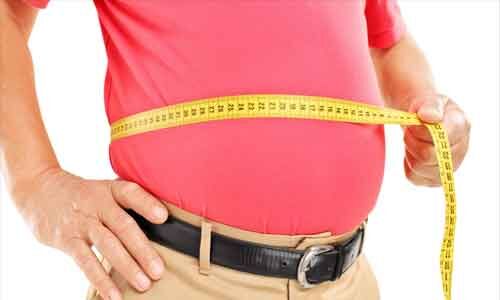- Home
- Medical news & Guidelines
- Anesthesiology
- Cardiology and CTVS
- Critical Care
- Dentistry
- Dermatology
- Diabetes and Endocrinology
- ENT
- Gastroenterology
- Medicine
- Nephrology
- Neurology
- Obstretics-Gynaecology
- Oncology
- Ophthalmology
- Orthopaedics
- Pediatrics-Neonatology
- Psychiatry
- Pulmonology
- Radiology
- Surgery
- Urology
- Laboratory Medicine
- Diet
- Nursing
- Paramedical
- Physiotherapy
- Health news
- Fact Check
- Bone Health Fact Check
- Brain Health Fact Check
- Cancer Related Fact Check
- Child Care Fact Check
- Dental and oral health fact check
- Diabetes and metabolic health fact check
- Diet and Nutrition Fact Check
- Eye and ENT Care Fact Check
- Fitness fact check
- Gut health fact check
- Heart health fact check
- Kidney health fact check
- Medical education fact check
- Men's health fact check
- Respiratory fact check
- Skin and hair care fact check
- Vaccine and Immunization fact check
- Women's health fact check
- AYUSH
- State News
- Andaman and Nicobar Islands
- Andhra Pradesh
- Arunachal Pradesh
- Assam
- Bihar
- Chandigarh
- Chattisgarh
- Dadra and Nagar Haveli
- Daman and Diu
- Delhi
- Goa
- Gujarat
- Haryana
- Himachal Pradesh
- Jammu & Kashmir
- Jharkhand
- Karnataka
- Kerala
- Ladakh
- Lakshadweep
- Madhya Pradesh
- Maharashtra
- Manipur
- Meghalaya
- Mizoram
- Nagaland
- Odisha
- Puducherry
- Punjab
- Rajasthan
- Sikkim
- Tamil Nadu
- Telangana
- Tripura
- Uttar Pradesh
- Uttrakhand
- West Bengal
- Medical Education
- Industry
Obese men with type 2 diabetes have poorer bone strength, finds study

USA: Obese men with type 2 diabetes (T2D) are at higher risk of worse bone disease than obese men without diabetes, suggests a recent study in the Journal of Clinical Endocrinology & Metabolism. According to the study, T2D patients with obesity had lower levels of bone turnover, poorer trabecular bone microarchitecture and bone strength.
Type 2 diabetes and obesity are both associated with higher bone mineral density (BMD) and increased fracture risk. However, not much is known about the effect of the combination of both conditions on bone metabolism, strength, and microarchitecture in the obese population.
To determine the same, Reina Armamento-Villareal, Michael E. DeBakey VA Medical Center, Houston, TX, USA, and colleagues collected data from 112 obese men. Body composition and BMD at all sites were assessed by dual energy X-ray absorptiometry, bone turnover and biochemical markers were measured by enzyme-linked immunosorbent assay, whereas bone microarchitecture and strength (stiffness and failure load) were measured by high-resolution peripheral computed tomography.
The researchers compared data among metabolically healthy obese (MHO) and metabolically unhealthy obese (MUHO) with and without T2D and between obese without and with T2D.
Key findings of the study include:
- Compared to MHO and MUHO without T2D, MUHO with T2D had significantly lower levels of osteocalcin ((7.49 ± 3.0 and 6.03 ± 2.47 vs 4.24 ± 2.72 ng/mL, respectively) and C-terminal telopeptide of type I collagen (CTx) (0.28 ± 0.10 and 0.29 ± 0.13 vs 0.21 ± 0.15 ng/mL, respectively).
- Dividing our subjects simply into those with and without T2D showed that obese men with T2D had significantly lower levels of osteocalcin and CTx, greater trabecular separation at the tibia and radius, and lower tibial failure load and stiffness, relative to obese men without T2D.
"In men, the combination of obesity and T2D is associated with reduced bone turnover and poorer trabecular bone microarchitecture and bone strength compared to those who are obese but without T2D, suggesting worse bone disease," wrote the authors.
This study provides further evidence that a more comprehensive strategy is needed regarding screening for bone fragility in T2D patients.
The study titled, "In Men With Obesity, T2DM Is Associated With Poor Trabecular Microarchitecture and Bone Strength and Low Bone Turnover," is published in the Journal of Clinical Endocrinology & Metabolism.
DOI: https://academic.oup.com/jcem/advance-article-abstract/doi/10.1210/clinem/dgab061/6127536
Dr Kamal Kant Kohli-MBBS, DTCD- a chest specialist with more than 30 years of practice and a flair for writing clinical articles, Dr Kamal Kant Kohli joined Medical Dialogues as a Chief Editor of Medical News. Besides writing articles, as an editor, he proofreads and verifies all the medical content published on Medical Dialogues including those coming from journals, studies,medical conferences,guidelines etc. Email: drkohli@medicaldialogues.in. Contact no. 011-43720751


